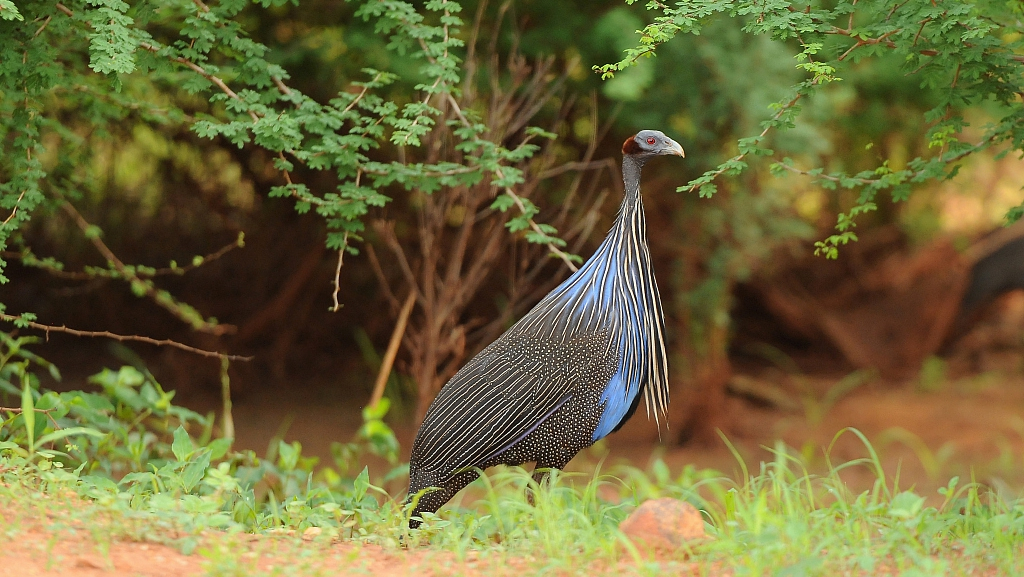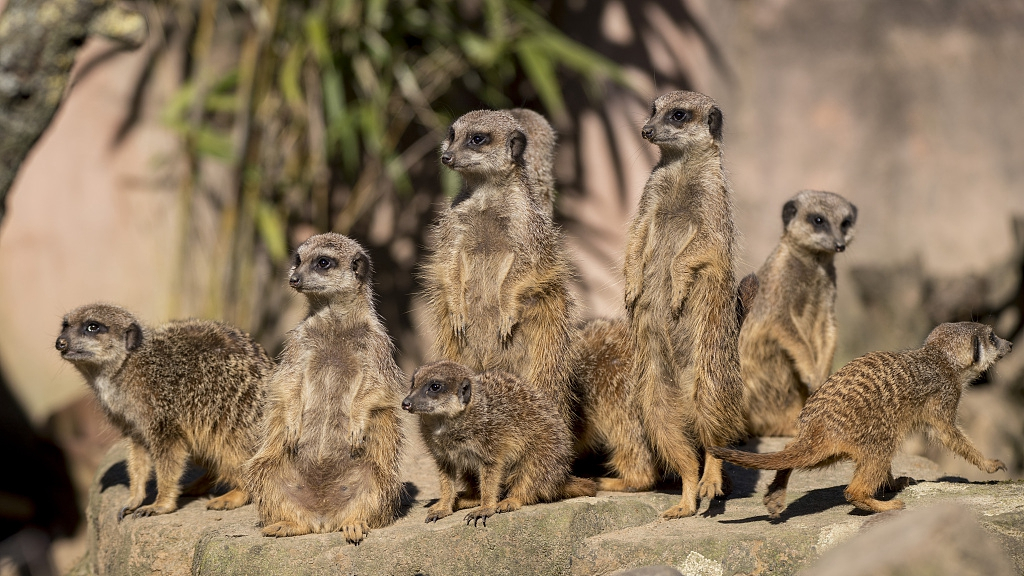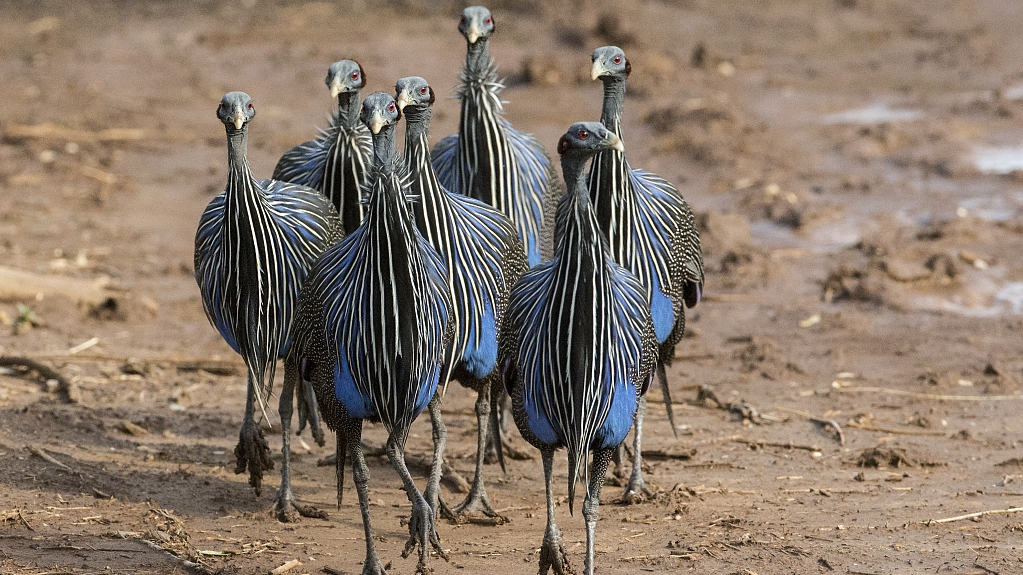Scientists have found that a small-brained bird in Kenya can form complex societies as do large-brained mammals like humans.
A study published on Monday in the journal Current Biology shows that the birds called vulturine guineafowl could keep track of hundreds of other individuals within one social group.

Vulturine guineafowl. /VCG Photo
Vulturine guineafowl. /VCG Photo
The findings challenge previously held notions that large brains are a requirement for complex societies and provide a clue as to how those multilevel societies evolved.
Multilevel societies occur when social units of animals form groups that have stable membership, and those groups then associate preferentially with specific other groups. This requires animals to keep track of individuals in both their own and other groups, according to the study.

Scientists from the Max Planck Institute of Animal Behavior and the University of Konstanz found that the vulturine guineafowl behave highly cohesively without exhibiting the signature intergroup aggression that is common in other group-living birds.
They used GPS tags to track over 400 adult birds in Kenya and found 18 distinct social groups with 13 to 65 individuals in each. The position of every single group was recorded continuously each day.
Those groups remained stable, and groups associate with each other based on preference, rather than random encounters, according to the study. Intergroup associations are also more likely to occurr during specific seasons and around particular physical features in the landscape.

Vulturine guineafowls. /VCG Photo
Vulturine guineafowls. /VCG Photo
"To our knowledge, this is the first time a social structure like this has been described for birds," said the paper's lead author Danai Papageorgiou, a PhD student at the Max Planck Institute of Animal Behavior.
"It is remarkable to observe hundreds of birds coming out of a roost and splitting up perfectly into completely stable groups every single day," said Papageorgiou.
The researchers have yet to know what happened in their brains, but it has opened up possibilities of exploring what is it about this bird that has made them evolve a social system that is in many ways more comparable to a primate than other birds, according to the researchers.
"Many examples of multilevel societies – primates, elephants and giraffes – might have evolved under similar ecological conditions as vulturine guineafowl," said Damien Farine, senior author on the paper and an investigator at the Max Planck Institute of Animal Behavior.
(All images via VCG)
(If you want to contribute and have specific expertise, please contact us at nature@cgtn.com)
Source(s): Xinhua News Agency